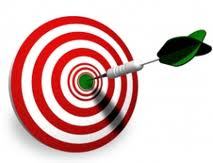
THE CENTER OF ATTENTION
Dr. Stern conducts comprehensive assessments of attention and concentration.
The Assessment
Visual and auditory attention, concentration and impulsiveness are assessed, in response both to understimulating (boring) tasks and to highly challenging (overloading) information.
An evaluation consists of two 2-3 hour testing sessions with the student, and some questionnaires for parents and the student to complete between these two meetings. Shortly after the second session, parents will receive a very detailed-- but reader friendly (no jargon), pinpointed evaluation of any potential attentional difficulties, with specific, useful recommendations for how to both remediate and accommodate for these problems at home and in school. Parents can also meet with Dr. Stern to go over the results of the report, and the student can be included in this meeting (or at a separate subsequent meeting) if you'd like.
A note on diagnosing ADD and ADHD:
Even though ADD and ADHD are often discussed by parents, teachers and in the media, many people don't know what it is exactly. Sure, it looks like a kid is not paying attention or is "hyper", but what causes him or her to behave this way? Paradoxically, ADD and ADHD are both over diagnosed and under diagnosed. A student can have weak attention not due to "wiring", but instead as the result of other learning difficulties or emotional issues that result in weakened attention and concentration. If a child is feeling anxious or depressed, then she may have difficulty sustaining her attention in school. If a student has a receptive language or auditory processing difficulty, for example, both of which can make it difficult to understand what one is hearing, then his attention will be weakened. When a student has difficulty understanding what the teacher is saying, then he will "get lost," fall behind and feel frustrated. Naturally he will stop paying attention at some point.
On the other hand, attentional weaknesses can sometimes be subtle. Many parents don't know much about working memory, for example, and a weak verbal and/or visual working memory can hamper one's ability to pay attention in subtle but significant ways. Reading comprehension, organizing essay writing, and the ability to solve multi-step math problems, among other complex tasks, often will suffer, and a student will tend to make many "careless mistakes." Parents and teachers typically think that this student may be "lazy" or not "living up to her potential," but, in fact, subtle attentional weaknesses are at play.
It's difficult to assess ADD and ADHD accurately, and there are actually many subtypes of these diagnoses. Board of Education evaluations, which usually give a student only a WISC and a Woodcock-Johnson, typically do not administer any test that directly assesses the many components of attention and concentration. And many neuropsychological evaluations also do not assess all aspects of attention as completely as they might. A thorough evaluation will give parents and the school an accurate picture of attentional strengths and weaknesses, as well as pinpointed ways of remediating and accommodating these difficulties.